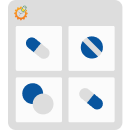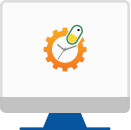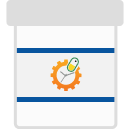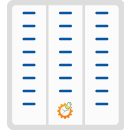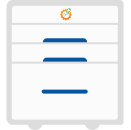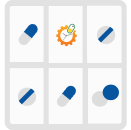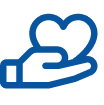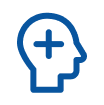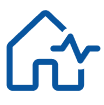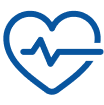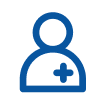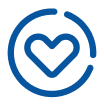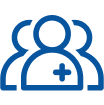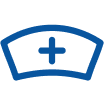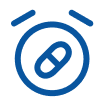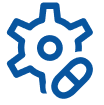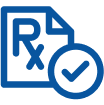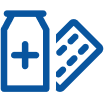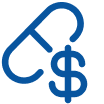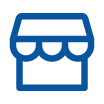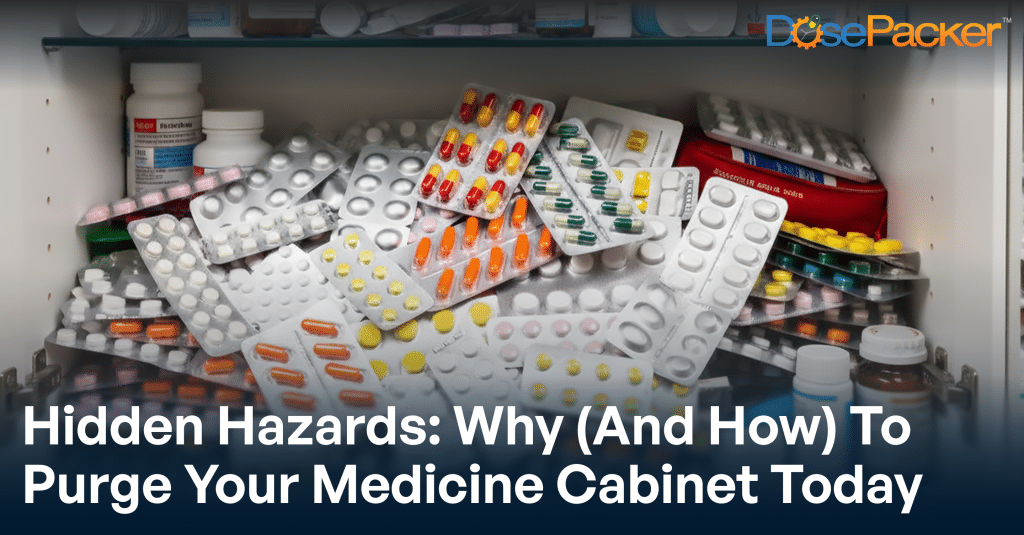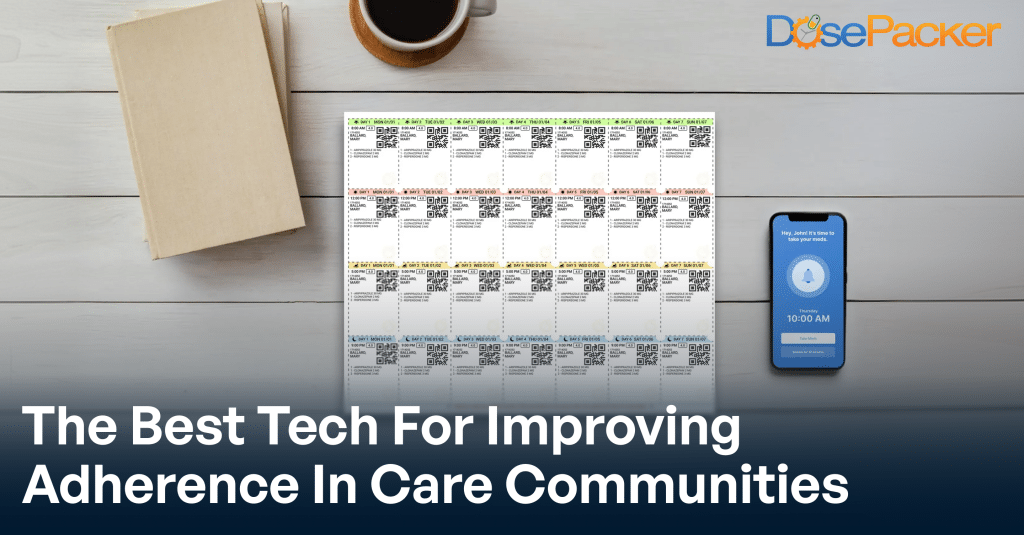Unlock the latest in medication management technology and grow your care community with us.

When you or a loved one needs ongoing medical care, you’ll likely encounter two key options: home health and skilled nursing. Both may sound similar, but they represent very different care approaches.
Understanding which option fits your situation best can make all the difference in your recovery, well-being, and peace of mind.
No matter which option you choose, the right tools, like DosePacker’s smart medication solutions, can help make care safer, simpler, and more reliable, so you never worry about missing or mixing up medications.
Enhance Medication Safety with DosePacker
What Is Home Health?
If your doctor recommends home health, it means care is coming to you right at home. This setup is especially helpful after a hospital stay, surgery, or if your health needs a bit more attention while you recover.
Your doctor might recommend home health services if you’re:
- Recovering from a hospital stay or surgery.
- Managing a chronic condition that’s gotten worse.
- Needing skilled medical care but can safely remain at home.
- Able to participate actively in your own care.
Home health agencies coordinate a team that provides home services, including:
- Skilled nursing care for wound care, medication management, and health monitoring.
- Physical therapy to rebuild strength and mobility.
- Occupational therapy to help with daily living activities.
- Speech-language pathology for communication and swallowing issues.
What Is Skilled Nursing?
Skilled nursing provides care in a dedicated medical community, often called a skilled nursing facility (SNF). This option is ideal when you need more hands-on help and round-the-clock medical supervision.
It’s recommended to be in one, if you:
- Require complex wound care or IV therapy
- Manage multiple serious health conditions
- Need intensive rehabilitation before safely returning home
- Have limited family support or live alone
Skilled nursing offers everything home health provides, plus more intensive services, such as:
- 24/7 skilled nursing with immediate response to medical changes
- Advanced wound care and infection management
- Intensive rehabilitation with daily physical, occupational, and speech therapy
- Coordinated care teams, including doctors, nurses, therapists, and specialists
Comparing Home Health vs. Skilled Nursing
Let’s put home health and skilled nursing side by side and see which path best serves your unique situation.
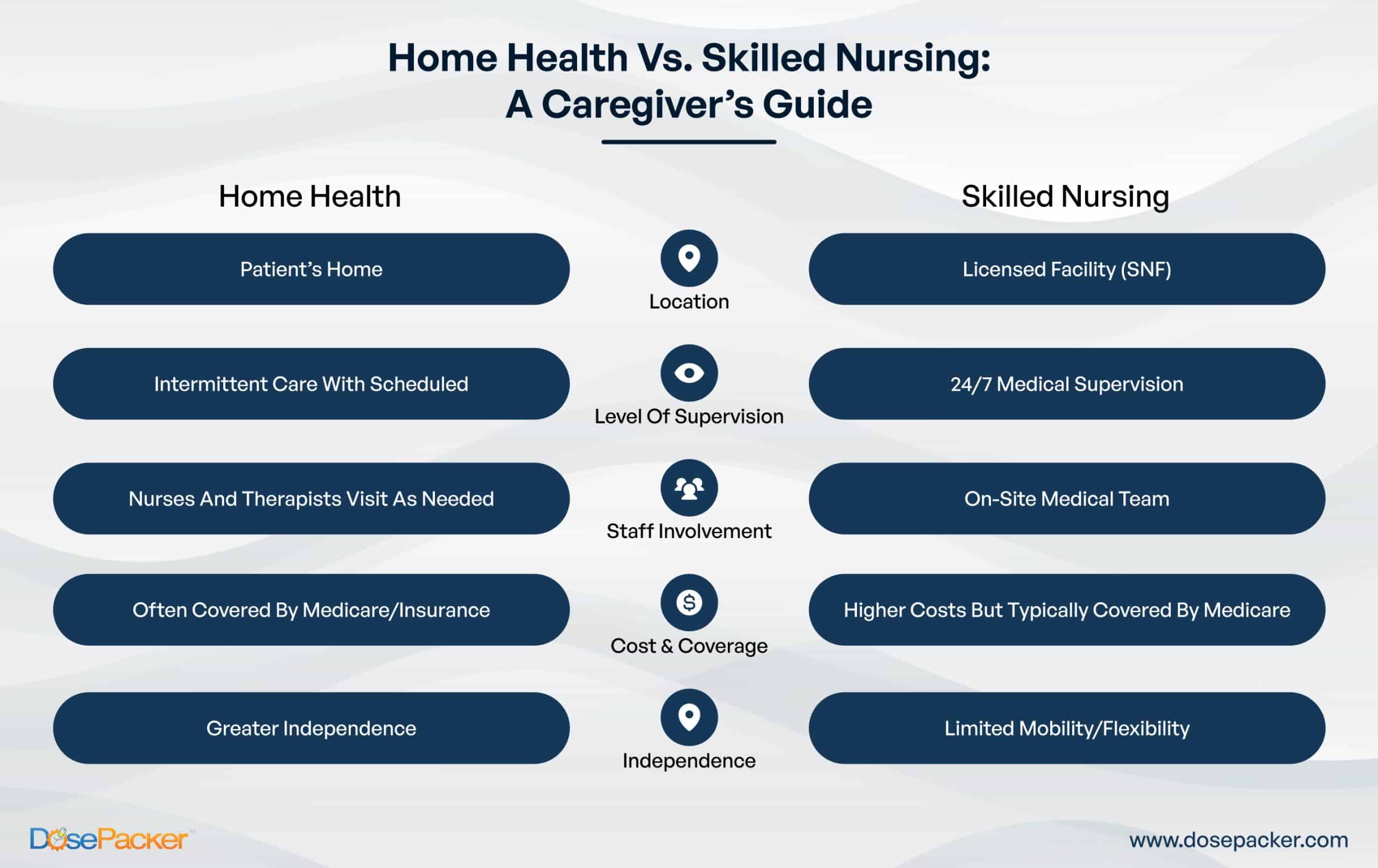
There is no “better” option. Find the one that aligns with your medical needs, personal preferences, and support system.
|
Did You Know? |
|
Your care needs can change over time. Many people start with skilled nursing for intensive recovery, then transition to home health as they improve, or vice versa. The key is having healthcare providers who can adapt their approach as your situation evolves. |
Factors to Consider When Choosing
Still not sure which path is right for you or a loved one? That’s normal. The decision often depends on a few factors that go beyond location or cost.
Here’s a quick checklist to help guide your thinking:
Health Condition & Medical Needs
- Does the patient need 24/7 medical care or just occasional support?
- Are there complex treatments like wound care, IVs, or close monitoring involved?
Mobility & Safety At Home
- Is it safe for the patients to move around at home without full-time help?
- Are there fall risks or mobility challenges that need extra support?
Support System
- Are family members or caregivers available and willing to help at home?
- Can they manage tasks like meds, meals, or basic care between visits?
Financial & Insurance Coverage
- What services are covered by insurance, Medicare, or Medicaid?
- What’s the out-of-pocket difference between home and facility care?
Recovery Goals
- Is this a short-term recovery or a long-term care plan?
- Will the patient eventually transition back to full independence?
This decision isn’t permanent. Your care team can help you transition between settings as your needs change.
How Medication Management Works in Each Setting
Once care is in place, one of the biggest daily responsibilities is medication management. But medication management can look very different depending on the care setting.
In Home Health
- Patients or family caregivers are often in charge of giving medications.
- A visiting nurse may stop by a few times a week to:
- Provide medicine support.
- Give injections or IV medications (if needed).
- Monitor side effects and report issues to the doctor.
In Skilled Nursing
- Licensed nurses administer all medications on-site.
- Medications are typically given during scheduled “med-passes”
- Nurses must:
- Follow the strict five rights of medication administration.
- Chart each administration in real-time.
- Monitor residents for side effects or changes in coordination.
Even with trained professionals involved, both care settings still face challenges:
|
Challenge |
Home Health |
Skilled Nursing |
|
Human Error |
Family members may miss doses or give the wrong amounts |
Even trained nurses can make mistakes during busy shifts |
|
Non-Adherence |
Patients may skip medications they don’t like |
Patients may refuse medications, creating a documentation burden |
|
Administrative Load |
Families struggle with complex medication schedules |
Nurses spend significant time on documentation vs. patient care |
|
Communication Breakdowns |
Changes in medications are not communicated quickly |
Multiple staff shifts can miss important medication updates |
Manage Medications in Every Setting with DosePacker
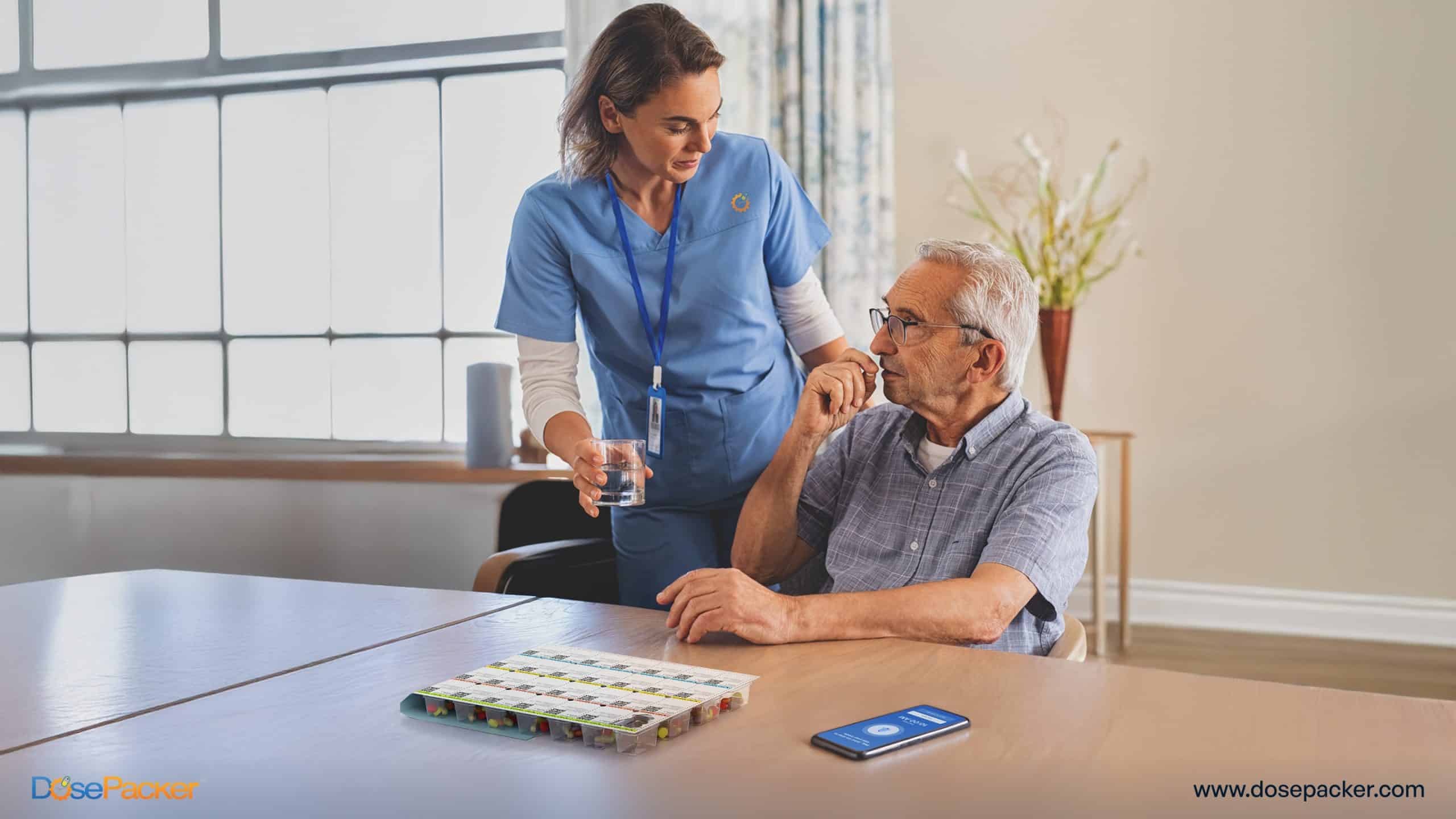
Whether care happens at home or in a skilled nursing facility, one thing stays the same: medication management needs to be safe, simple, and accurate.
That’s exactly what DosePacker delivers: a suite of smart tools designed to support caregivers, nurses, and families, no matter the setting!
CareCommunityOS
Your all-in-one command center for medication safety and care coordination. Our system offers real-time alerts when medications are due or missed, task workflows to keep care teams on track, and seamless documentation tools that work in both home and facility-based care.
DosePacker Storage
With a built-in camera that verifies when a patient takes their dose, it gives caregivers and nurses peace of mind. This real-time visibility helps reduce errors and supports families and home health teams with accurate, automatic records.
DoseKart
Our DoseKart is specifically designed for skilled nursing facilities, enabling staff to make med passes faster, safer, and more accurate. With scan-to-confirm verification and digital tracking, it ensures the right resident receives the correct dose at the right time.
Upgrade How You Manage Medications
You deserve care that’s safe, effective, and aligned with your values. With the right information, support system, and technological solutions, both paths can lead to the outcome that guarantees your best possible health outcome and quality of life.
